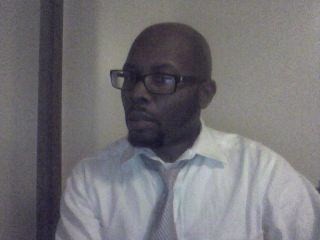Nine year old boys have a proclivity for making their mother’s nervous, but in the summer of 1968, my request not only made her nervous, but it gave her a headache. This nine year who was fascinated by the Kennedy’s, stunned by the recent murder of Robert Kennedy, and enthralled by the image of the eternal flame, demanded what we interrupt our Washington vacation to go to Arlington so that I could “bless” the Kennedy brothers. My mother’s first thought was “who does he think he is – the Pope?” Little did my mother know that at early age, I had developed an addiction for Camelot. Now with the last of the Kennedy brothers, Senator Edward Kennedy stilled after a battle with brain cancer, I begun to reflect not just on the life of Senator Edward Moore Kennedy, but on the impressions and impact that America’s last political dynasty had on me, my politics, and my view of America, race, and power.
By age 13, eighty percent of what I know today about the Kennedy’s I already knew. For example, I knew that Joseph P. Kennedy Jr. born two years before John was their father’s first choice to be President, and how the mantle passed to Jack, only after Joe Jr. was shot down and killed during World War II. I knew about the lobotomy of Rosemary, and was versed in the stories of colorful grandfather Honey “Fitz” Fitzgerald. By sixteen, had read most of Theodore White’s Making of the President series and learned how the Kennedy’s as far back as 1958 begin mapping out a national election strategy, and how John Kennedy dealt issue of his Catholicism in 1960. I also read how Robert Kennedy struggled to make the final break with Lyndon Johnson and challenge him for the Presidency. I knew about their love for touch football, about their Hyannis port compound, and names like Sergeant Shriver, and Ted Sorenson were familiar to me as my own family’s names. Although I was too young to remember the murder of John Kennedy, I will never forget the 2 am call June 5, 1968 that my mother received which sent her screaming. It would not be until the election of Barack Obama forty years later, that I felt America had earned her redemption.
After the death of Robert Kennedy in 1968, like many Americans, I realized that the torch of the Kennedy family had passed to “Teddy”. Like many Americans I was hurt and disappointed that his personal choices would ultimately deny him what many of us thought was rightly his. As such, many who mourn the loss of Senator Edward Kennedy today, mourn the elder statesman who is now spoken about with the same reverence of past Senatorial giants like Henry Clay, and Daniel Webster, of another age, or his brother’s political rival Senator Adlai Stevenson, and Daniel Patrick Moynihan of more modern times. Yet Edward Moore Kennedy made himself a great Senator by the sheer force of will and determination – he surely wasn’t born one. Let’s we forget, he became a Senator by succeeding his brother John, and for many of those years was viewed as a political lightweight, whose sole asset was his last name. Often over that same tumultuous period, he was seen as a caricature of himself, often featured in political satire as overweight, and drunk. His public personal has always been a mess as he crafted an image of a train wreck and for many years it didn’t appear he would do much in the way of personal rehabilitation.
Then something changed, as the country mired in the malaise of the post Vietnam 70’s, Senator Kennedy found his voice - at least his political one. But was it too late? In November of 1979 saying “The country is ready to advance, it is willing to stand, and so am I”, Senator Edward Kennedy announced that he was a candidate for the Democratic nomination. And in doing so, like his brother Robert, he was taking on an unpopular sitting President of his own party. It was a high stake political calculation that would either bring about the restoration of the Kennedys to the nation’s highest office, or be vilified as an insurgent candidacy that would divide the party and hand the White House to Ronald Reagan. Ultimately, the Kennedy campaign failed yet, seemingly undaunted by what could have been his political Waterloo, Senator Kennedy seemed to grow in front of us. He roused the audience at the 1980 Democratic Convention, in what may have his most defining moment. It seemed like at that moment, Edward Moore Kennedy was liberated, freed from having to seek what appeared to be the family birthright, the Presidency of the United States. At that moment, Senator Kennedy seemed to realize, history would now define him as a United States Senator – not as President. As such, Edward Kennedy begun amassed his own legacy, using his influence, his oratory skills, his legislative clout, to speak on behalf, of the underserved, and underclass.
His 2008 endorsement of then Senator Barack Obama was a game changer, and in doing so, put the nail in the candidacy of Hillary Clinton, wife of long time political rival former President William Clinton. Now with Richter scale irony, Senator Kennedy’s death comes at time a man of color is in the White House, and as his dream of universal health care lies in the balance. Nearly fifty years ago on the eve of his inauguration, John Kennedy gave his youngest brother an ash tray that had carved on the bottom “the last shall be first”. That gift seemed to be prophetic. As in the end, Edward Moore Kennedy reluctantly took the baton from his more celebrated brothers, with a whimper - but finished the race with a roar. As the Lion of the Senate lies in repose, a remarkable chapter, of American power, American triumph, and American tragedy that we knew as Camelot comes to a close.
Well done Senator Kennedy.
Rest in Peace.
Subscribe to:
Post Comments (Atom)



No comments:
Post a Comment